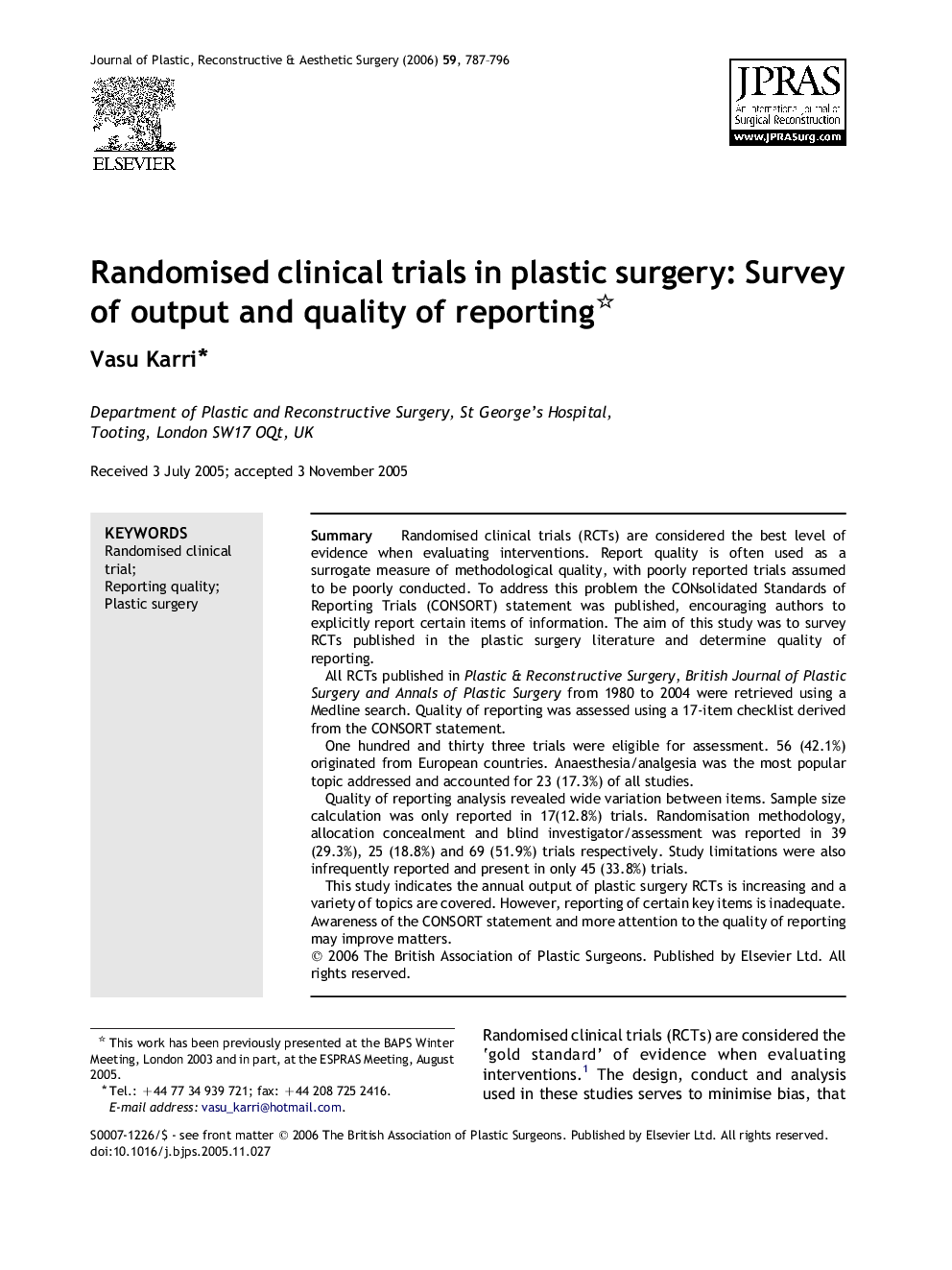| Article ID | Journal | Published Year | Pages | File Type |
|---|---|---|---|---|
| 4121906 | Journal of Plastic, Reconstructive & Aesthetic Surgery | 2006 | 10 Pages |
SummaryRandomised clinical trials (RCTs) are considered the best level of evidence when evaluating interventions. Report quality is often used as a surrogate measure of methodological quality, with poorly reported trials assumed to be poorly conducted. To address this problem the CONsolidated Standards of Reporting Trials (CONSORT) statement was published, encouraging authors to explicitly report certain items of information. The aim of this study was to survey RCTs published in the plastic surgery literature and determine quality of reporting.All RCTs published in Plastic & Reconstructive Surgery, British Journal of Plastic Surgery and Annals of Plastic Surgery from 1980 to 2004 were retrieved using a Medline search. Quality of reporting was assessed using a 17-item checklist derived from the CONSORT statement.One hundred and thirty three trials were eligible for assessment. 56 (42.1%) originated from European countries. Anaesthesia/analgesia was the most popular topic addressed and accounted for 23 (17.3%) of all studies.Quality of reporting analysis revealed wide variation between items. Sample size calculation was only reported in 17(12.8%) trials. Randomisation methodology, allocation concealment and blind investigator/assessment was reported in 39 (29.3%), 25 (18.8%) and 69 (51.9%) trials respectively. Study limitations were also infrequently reported and present in only 45 (33.8%) trials.This study indicates the annual output of plastic surgery RCTs is increasing and a variety of topics are covered. However, reporting of certain key items is inadequate. Awareness of the CONSORT statement and more attention to the quality of reporting may improve matters.
